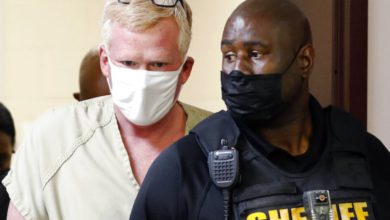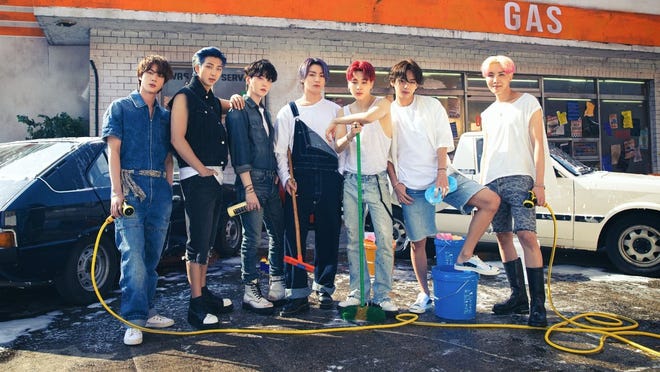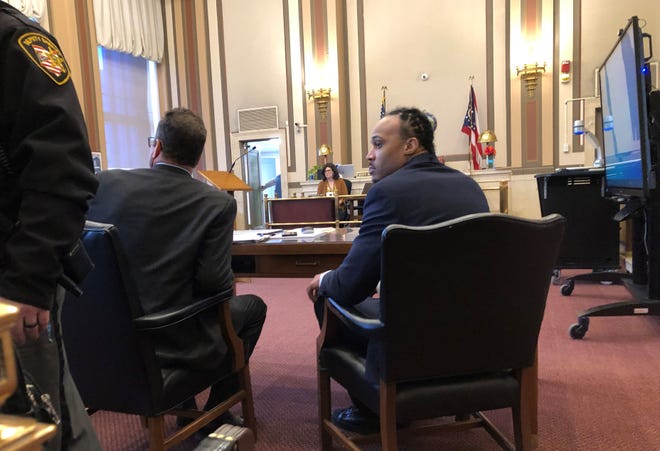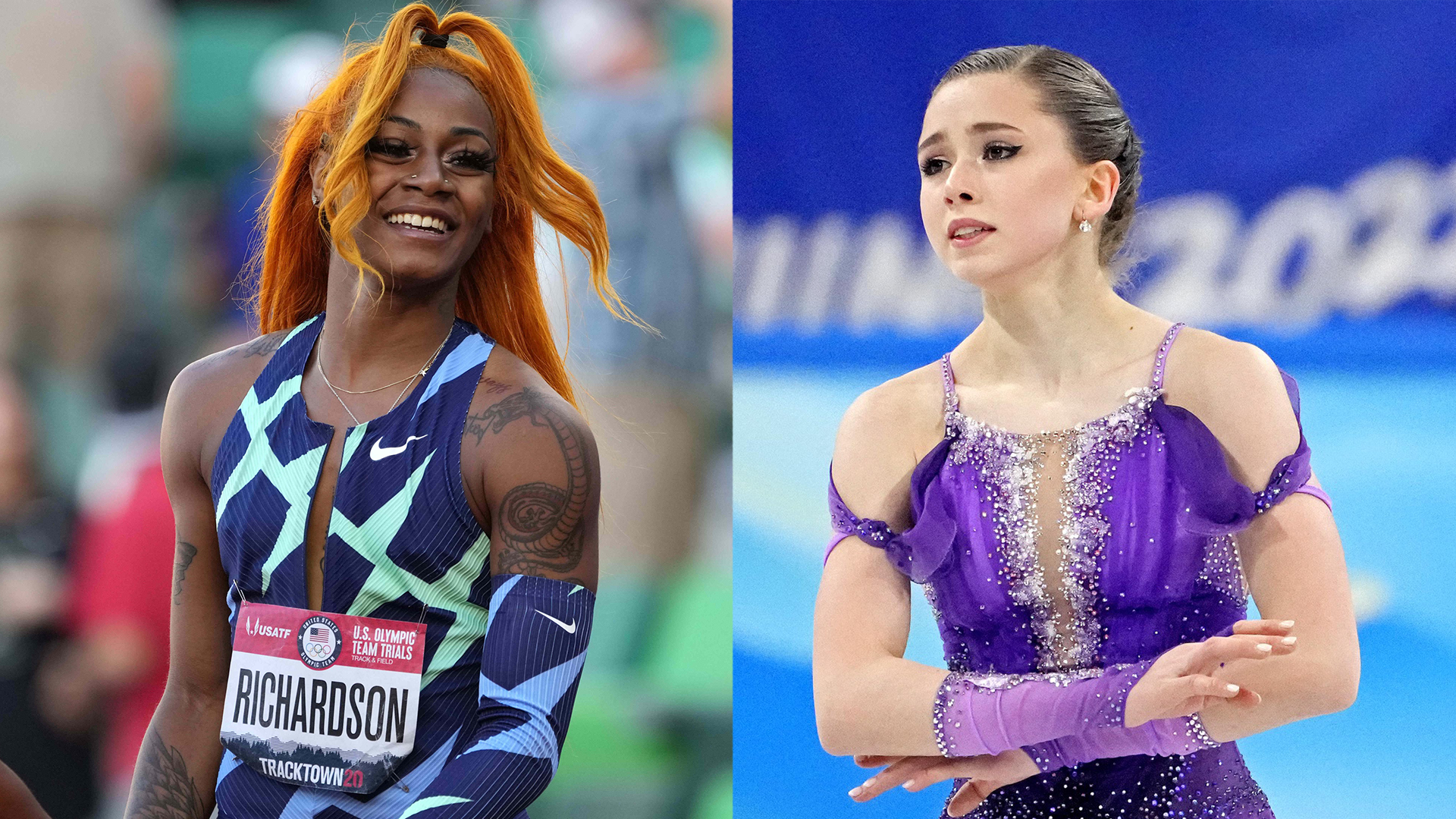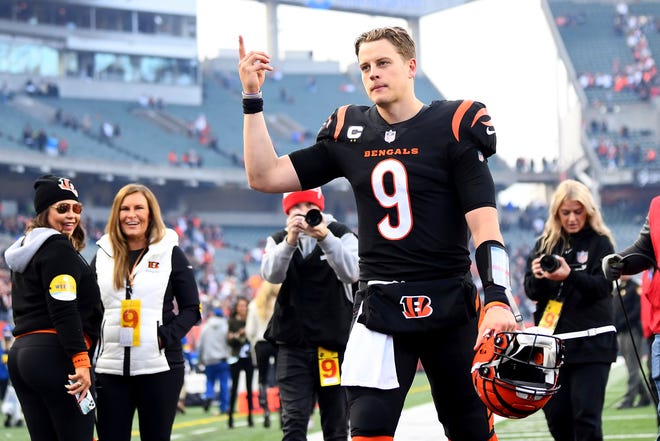
Related video above: Does double masking help stop the spread?In order to return to some sense of “normal,” roughly 85% of Americans will need to get the COVID-19 vaccine to bring the pandemic to a halt, per Anthony Fauci, M.D., the nation’s leading infectious disease expert.Vaccine distribution is well underway in most states and President Joe Biden has vowed to have 100 million doses administered to Americans in his first 100 days in office. It’s a lofty goal, as only about 9.8 million people have received both doses of the vaccine as of Feb. 9.Data shows that the authorized coronavirus vaccines from Pfizer-BioNTech and Moderna, both of which use mRNA technology, can help protect people against developing a severe case of COVID-19. But there’s still one big question that researchers are trying to answer: Can you still spread COVID-19 to others even after you’re fully vaccinated?Dr. Fauci told CNN in November that “it’s not going to be a light switch” back to pre-pandemic times. “I would recommend to people to not abandon all public health measures just because you have been vaccinated.” First, a refresher on why we need a COVID-19 vaccine to end the pandemic.Herd immunity, a.k.a. community immunity, means a significant portion of a population is immune to an infectious disease, according to the Centers for Disease Control and Prevention (CDC). This ultimately makes the spread of the infectious disease from person to person unlikely.Herd immunity can be achieved when enough people (the percentage varies with each disease) contract an illness and build natural immunity to it or through vaccination. In the case of COVID-19, natural immunity is out of the question, as the virus can be deadly or cause long-lasting side effects in those who survive. So far, more than 460,000 Americans have lost their lives to COVID-19.That’s why vaccination is crucial: It’s the safest way to achieve herd immunity, says Richard Watkins, M.D., an infectious disease physician and a professor of internal medicine at the Northeast Ohio Medical University.Herd immunity also helps protect vulnerable people who can’t get vaccinated. When a large portion of people can get the vaccine choose not to do so, those who cannot receive one will remain at risk — and the virus will continue to circulate. Can you still spread COVID-19 to other people after getting the vaccine?Most infectious disease experts believe that a highly effective vaccine will help lower the risk that you can spread COVID-19 after you’re immunized, but they’re still trying to determine what the impact looks like on case numbers. Data hasn’t been released yet on whether the vaccines offer what’s known as sterilizing immunity, which means that those who are vaccinated can’t contract or pass on the virus at all. “We expect that the level of risk of transmissibility is greatly diminished, but not eliminated,” says Stanley H. Weiss, M.D., an epidemiologist and professor at Rutgers New Jersey Medical School and the Department of Biostatistics & Epidemiology at the Rutgers School of Public Health. “The clinical trials that looked at the vaccines that are authorized for use by the FDA were based on the prevention of symptomatic disease — they weren’t looking at asymptomatic disease,” says infectious disease expert Amesh A. Adalja, M.D., senior scholar at the Johns Hopkins Center for Health Security. “They weren’t designed to determine whether asymptomatic transmission would occur .” Statistics vary, but research has shown that up to 20% of people who have COVID-19 show no symptoms. (Earlier reports cited a much higher number, but most data now suggest that people who were previously counted as asymptomatic ended up developing symptoms.)Until studies shows otherwise, there’s a chance that people who are vaccinated can still become infected with COVID-19 without experiencing symptoms and shed the virus. Even after you receive your two doses, the available vaccines are not 100% effective at preventing COVID-19 infection.So, if the novel coronavirus makes its way into your body after you get the vaccine, your immune system will have a good chance of fighting it off — but it also might allow small amounts of the virus to replicate, says Dr. Adalja. Sure, you may have a mild case or no symptoms at all, but your body can still release the virus via respiratory droplets from your nose and mouth, potentially infecting someone else who does not have the same level of protection from immunization. This is where things become tricky: Researchers really don’t know if this viral load would be big enough to make someone else sick.There’s also a possibility that you could get COVID-19 right before or after your vaccination. According to the CDC, it takes a few weeks for immunity to fully kick in, so you can still theoretically become infected and pass the virus on to others as your body works on ramping up its immune response.Recent research released from the University of Oxford and biopharmaceutical company AstraZeneca did look at whether people who had received their vaccine candidate in clinical trials had the potential to pass on the coronavirus.The preliminary study, which was published in Preprints with The Lancet on Feb. 1, analyzed data from participants in the U.K., Brazil, and South Africa, and found that the overall efficacy of the two-dose vaccine is 82.4%. The research also found that there was a 67% reduction in nasal swabs that were positive for the coronavirus after people were vaccinated, suggesting that they were much less likely to spread COVID-19 afterward. That said, the AstraZeneca vaccine — which is not yet authorized in the U.S. — was recently found to be less effective in South Africa, particularly against the South African variant of the virus. It’s unclear at this point how the highly infectious coronavirus variants might impact a person’s ability to spread COVID-19 after they are fully vaccinated, Dr. Adalja says. But experts anticipate that the vaccines we currently have will still be protective and largely effective at containing the spread of the virus when combined with other preventive measures.What precautions should I take after I get the COVID-19 vaccine?Dr. Adalja says it might take a while before we have the research to determine that getting vaccinated reduces the risk of spreading the virus to others.“It’s going to take time to accrue this data,” he says. “People want to see more data before they definitively make something part of public health guidance.” In an effort to compile this data, researchers are going back to the people who were vaccinated as part of the Pfizer-BioNTech and Moderna trials and looking for antibodies that show they’ve been infected with COVID-19, NPR reports. But it’s not a perfect method, as antibody tests aren’t always accurate and it’s unclear how long these infection-fighters last within the body.Until we have that information, the CDC emphasizes that “it’s important for everyone to continue using all the tools available to help stop this pandemic as we learn more about how COVID-19 vaccines work in real-world conditions.” As a result, even those who have received the COVID-19 vaccine should continue to wear a face mask, stay at least 6 feet away from people outside of their household, avoid crowds, and wash their hands often.Once the nation sees a significant decline in positive cases, hospitalizations, and deaths, and a significant uptick in fully vaccinated people, public health officials will definitely let us know when it’s time to pack away the masks—until then, keep wearing one.
Related video above: Does double masking help stop the spread?
In order to return to some sense of “normal,” roughly 85% of Americans will need to get the COVID-19 vaccine to bring the pandemic to a halt, per Anthony Fauci, M.D., the nation’s leading infectious disease expert.
Vaccine distribution is well underway in most states and President Joe Biden has vowed to have 100 million doses administered to Americans in his first 100 days in office. It’s a lofty goal, as only about 9.8 million people have received both doses of the vaccine as of Feb. 9.
Data shows that the authorized coronavirus vaccines from Pfizer-BioNTech and Moderna, both of which use mRNA technology, can help protect people against developing a severe case of COVID-19. But there’s still one big question that researchers are trying to answer: Can you still spread COVID-19 to others even after you’re fully vaccinated?
Dr. Fauci told CNN in November that “it’s not going to be a light switch” back to pre-pandemic times. “I would recommend to people to not abandon all public health measures just because you have been vaccinated.”
First, a refresher on why we need a COVID-19 vaccine to end the pandemic.
Herd immunity, a.k.a. community immunity, means a significant portion of a population is immune to an infectious disease, according to the Centers for Disease Control and Prevention (CDC). This ultimately makes the spread of the infectious disease from person to person unlikely.
Herd immunity can be achieved when enough people (the percentage varies with each disease) contract an illness and build natural immunity to it or through vaccination. In the case of COVID-19, natural immunity is out of the question, as the virus can be deadly or cause long-lasting side effects in those who survive. So far, more than 460,000 Americans have lost their lives to COVID-19.
That’s why vaccination is crucial: It’s the safest way to achieve herd immunity, says Richard Watkins, M.D., an infectious disease physician and a professor of internal medicine at the Northeast Ohio Medical University.
Herd immunity also helps protect vulnerable people who can’t get vaccinated. When a large portion of people can get the vaccine choose not to do so, those who cannot receive one will remain at risk — and the virus will continue to circulate.
Can you still spread COVID-19 to other people after getting the vaccine?
Most infectious disease experts believe that a highly effective vaccine will help lower the risk that you can spread COVID-19 after you’re immunized, but they’re still trying to determine what the impact looks like on case numbers. Data hasn’t been released yet on whether the vaccines offer what’s known as sterilizing immunity, which means that those who are vaccinated can’t contract or pass on the virus at all.
“We expect that the level of risk of transmissibility is greatly diminished, but not eliminated,” says Stanley H. Weiss, M.D., an epidemiologist and professor at Rutgers New Jersey Medical School and the Department of Biostatistics & Epidemiology at the Rutgers School of Public Health.
“The clinical trials that looked at the vaccines that are authorized for use by the FDA were based on the prevention of symptomatic disease — they weren’t looking at asymptomatic disease,” says infectious disease expert Amesh A. Adalja, M.D., senior scholar at the Johns Hopkins Center for Health Security. “They weren’t designed to determine whether asymptomatic transmission would occur [post vaccination].”
Statistics vary, but research has shown that up to 20% of people who have COVID-19 show no symptoms. (Earlier reports cited a much higher number, but most data now suggest that people who were previously counted as asymptomatic ended up developing symptoms.)
Until studies shows otherwise, there’s a chance that people who are vaccinated can still become infected with COVID-19 without experiencing symptoms and shed the virus. Even after you receive your two doses, the available vaccines are not 100% effective at preventing COVID-19 infection.
So, if the novel coronavirus makes its way into your body after you get the vaccine, your immune system will have a good chance of fighting it off — but it also might allow small amounts of the virus to replicate, says Dr. Adalja. Sure, you may have a mild case or no symptoms at all, but your body can still release the virus via respiratory droplets from your nose and mouth, potentially infecting someone else who does not have the same level of protection from immunization. This is where things become tricky: Researchers really don’t know if this viral load would be big enough to make someone else sick.
There’s also a possibility that you could get COVID-19 right before or after your vaccination. According to the CDC, it takes a few weeks for immunity to fully kick in, so you can still theoretically become infected and pass the virus on to others as your body works on ramping up its immune response.
Recent research released from the University of Oxford and biopharmaceutical company AstraZeneca did look at whether people who had received their vaccine candidate in clinical trials had the potential to pass on the coronavirus.
The preliminary study, which was published in Preprints with The Lancet on Feb. 1, analyzed data from participants in the U.K., Brazil, and South Africa, and found that the overall efficacy of the two-dose vaccine is 82.4%. The research also found that there was a 67% reduction in nasal swabs that were positive for the coronavirus after people were vaccinated, suggesting that they were much less likely to spread COVID-19 afterward.
That said, the AstraZeneca vaccine — which is not yet authorized in the U.S. — was recently found to be less effective in South Africa, particularly against the South African variant of the virus. It’s unclear at this point how the highly infectious coronavirus variants might impact a person’s ability to spread COVID-19 after they are fully vaccinated, Dr. Adalja says.
But experts anticipate that the vaccines we currently have will still be protective and largely effective at containing the spread of the virus when combined with other preventive measures.
What precautions should I take after I get the COVID-19 vaccine?
Dr. Adalja says it might take a while before we have the research to determine that getting vaccinated reduces the risk of spreading the virus to others.
“It’s going to take time to accrue this data,” he says. “People want to see more data before they definitively make something part of public health guidance.”
In an effort to compile this data, researchers are going back to the people who were vaccinated as part of the Pfizer-BioNTech and Moderna trials and looking for antibodies that show they’ve been infected with COVID-19, NPR reports. But it’s not a perfect method, as antibody tests aren’t always accurate and it’s unclear how long these infection-fighters last within the body.
Until we have that information, the CDC emphasizes that “it’s important for everyone to continue using all the tools available to help stop this pandemic as we learn more about how COVID-19 vaccines work in real-world conditions.” As a result, even those who have received the COVID-19 vaccine should continue to wear a face mask, stay at least 6 feet away from people outside of their household, avoid crowds, and wash their hands often.
Once the nation sees a significant decline in positive cases, hospitalizations, and deaths, and a significant uptick in fully vaccinated people, public health officials will definitely let us know when it’s time to pack away the masks—until then, keep wearing one.
Source link


